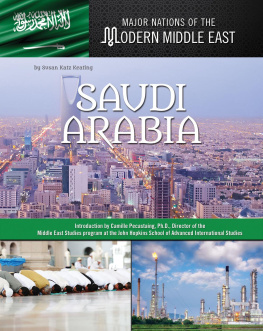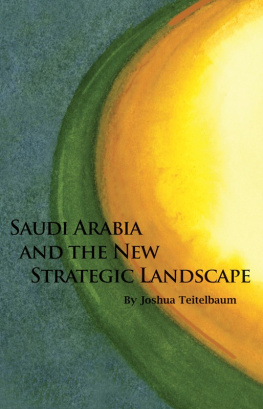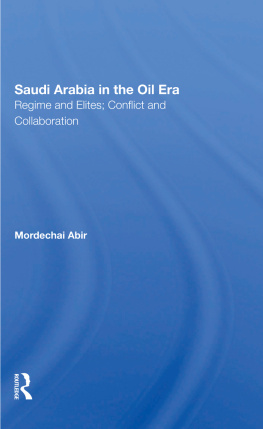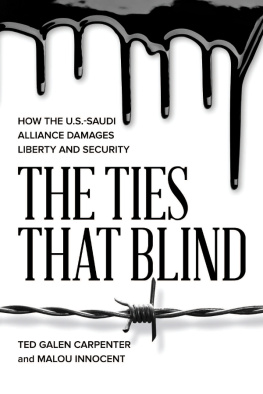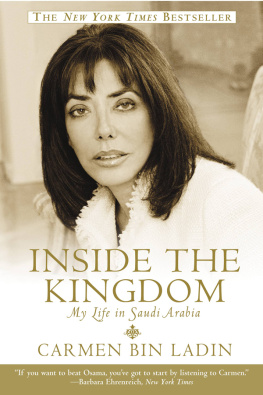Anthony Cordesman - Western Strategic Interests in Saudi Arabia (RLE Saudi Arabia)
Here you can read online Anthony Cordesman - Western Strategic Interests in Saudi Arabia (RLE Saudi Arabia) full text of the book (entire story) in english for free. Download pdf and epub, get meaning, cover and reviews about this ebook. year: 2020, publisher: Routledge, genre: Politics. Description of the work, (preface) as well as reviews are available. Best literature library LitArk.com created for fans of good reading and offers a wide selection of genres:
Romance novel
Science fiction
Adventure
Detective
Science
History
Home and family
Prose
Art
Politics
Computer
Non-fiction
Religion
Business
Children
Humor
Choose a favorite category and find really read worthwhile books. Enjoy immersion in the world of imagination, feel the emotions of the characters or learn something new for yourself, make an fascinating discovery.

- Book:Western Strategic Interests in Saudi Arabia (RLE Saudi Arabia)
- Author:
- Publisher:Routledge
- Genre:
- Year:2020
- Rating:3 / 5
- Favourites:Add to favourites
- Your mark:
- 60
- 1
- 2
- 3
- 4
- 5
Western Strategic Interests in Saudi Arabia (RLE Saudi Arabia): summary, description and annotation
We offer to read an annotation, description, summary or preface (depends on what the author of the book "Western Strategic Interests in Saudi Arabia (RLE Saudi Arabia)" wrote himself). If you haven't found the necessary information about the book — write in the comments, we will try to find it.
Western Strategic Interests in Saudi Arabia (RLE Saudi Arabia) — read online for free the complete book (whole text) full work
Below is the text of the book, divided by pages. System saving the place of the last page read, allows you to conveniently read the book "Western Strategic Interests in Saudi Arabia (RLE Saudi Arabia)" online for free, without having to search again every time where you left off. Put a bookmark, and you can go to the page where you finished reading at any time.
Font size:
Interval:
Bookmark:

by Routledge
2 Park Square, Milton Park, Abingdon, Oxon, OX14 4RN
711 Third Avenue, New York, NY 10017
A catalogue record for this book is available from the British Library
ISBN: 9781138846395 (Volume 7)
The publisher has gone to great lengths to ensure the quality of this reprint but points out that some imperfections in the original copies may be apparent.
The publisher has made every effort to trace copyright holders and would welcome correspondence from those they have been unable to trace.
Croom Helm Ltd, Provident House, Burrell Row,
Beckenham, Kent, BR3 1AT
Croom Helm Australia, 4450 Waterloo Road,
North Ryde, 2113, New South Wales
Western strategic interests in Saudi Arabia.
1. World politics198519952. Saudi
ArabiaForeign relations
I. Title
327.091713 DS227
Wolfeboro, New Hampshire 038942069, USA
Biddies Ltd, Guildford and Kings Lynn
Font size:
Interval:
Bookmark:
Similar books «Western Strategic Interests in Saudi Arabia (RLE Saudi Arabia)»
Look at similar books to Western Strategic Interests in Saudi Arabia (RLE Saudi Arabia). We have selected literature similar in name and meaning in the hope of providing readers with more options to find new, interesting, not yet read works.
Discussion, reviews of the book Western Strategic Interests in Saudi Arabia (RLE Saudi Arabia) and just readers' own opinions. Leave your comments, write what you think about the work, its meaning or the main characters. Specify what exactly you liked and what you didn't like, and why you think so.

